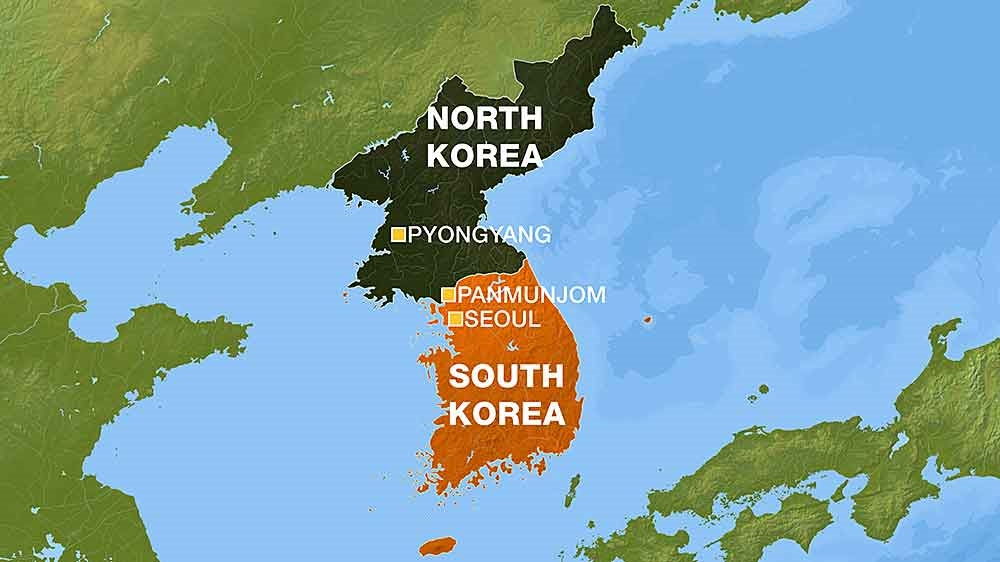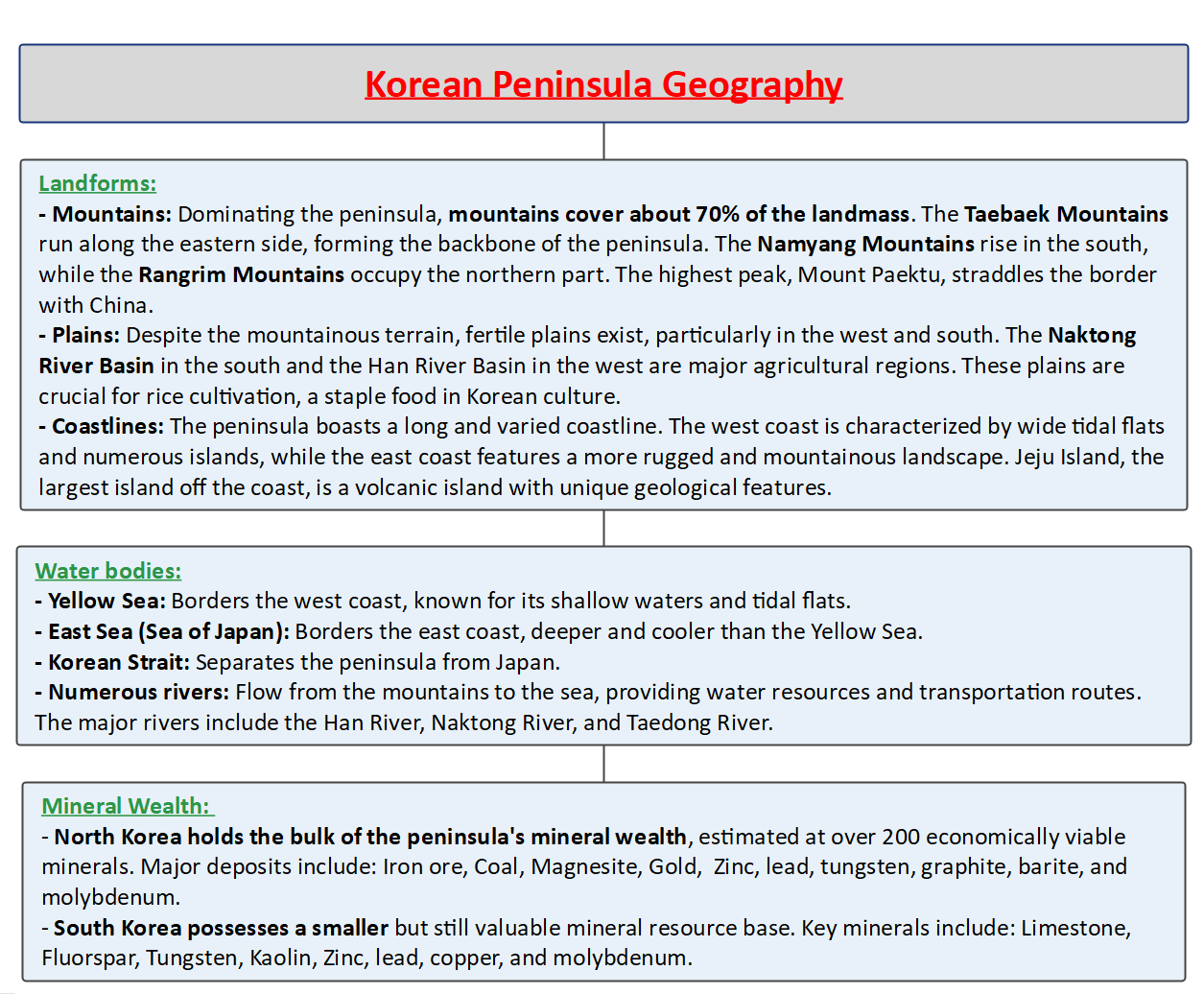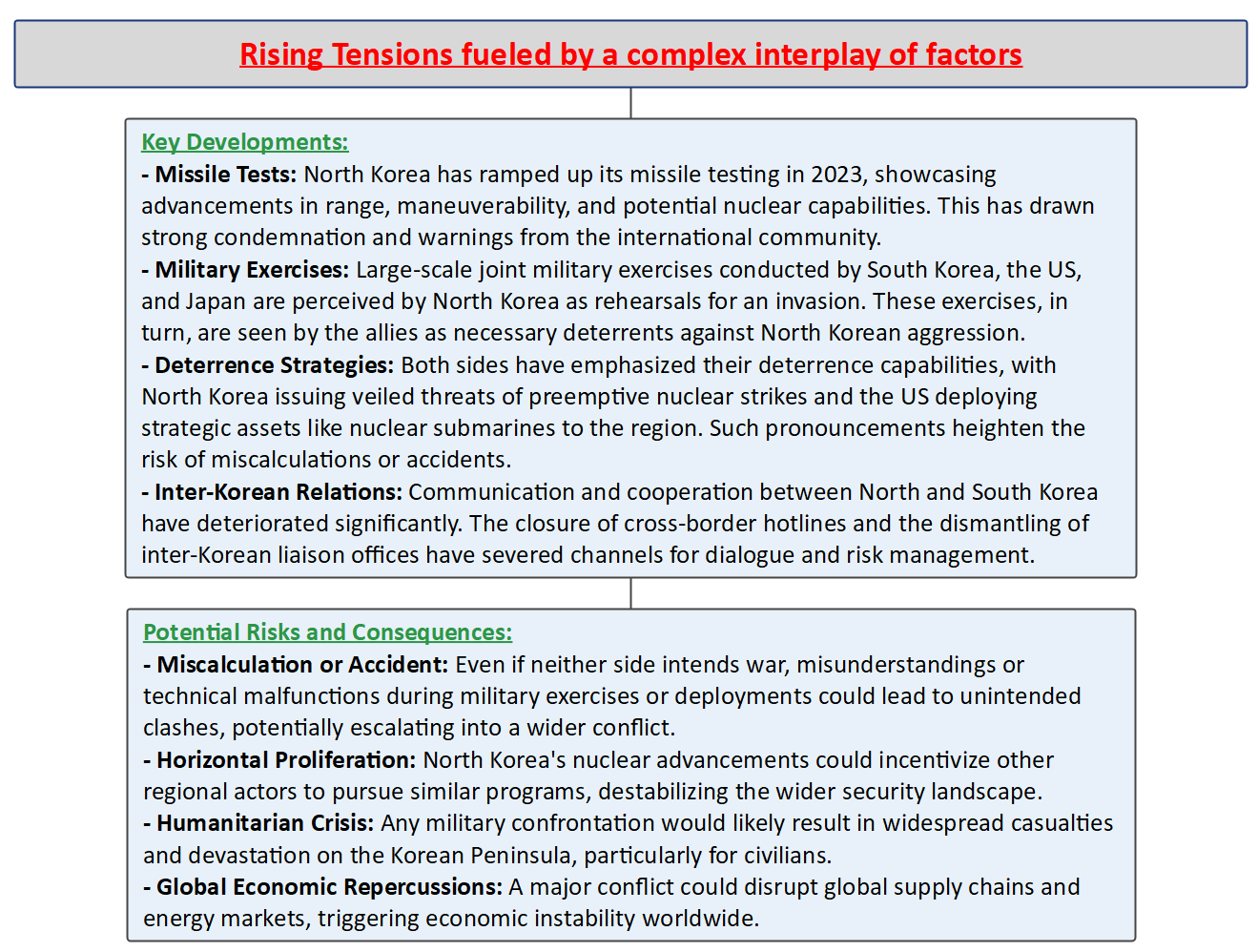Free Courses Sale ends Soon, Get It Now


Free Courses Sale ends Soon, Get It Now



Copyright infringement not intended
Picture Courtesy: bharatshakti.in
Context: The current aggravation of ties between North and South Korea results from North Korea's abandonment of the goal of Korean reunification and its formal categorization of South Korea as an adversarial state.
Background

Historical Context:
|
Understanding the Complexities ●North Korea's Nuclear Program: The core issue revolves around North Korea's pursuit of nuclear weapons and ballistic missiles, viewed by the international community as a grave threat. While its motivations are complex, they likely stem from a desire for deterrence against perceived US aggression, regime security, and internal legitimacy. ●Stalled Denuclearization Efforts: Previous diplomatic efforts at denuclearization, such as the 2018 Singapore and 2019 Hanoi summits, have yielded little tangible progress. North Korea's continued advancements in its nuclear and missile programs, coupled with its refusal to return to dialogue, have significantly dampened hopes for a peaceful resolution. ●Escalatory Rhetoric and Actions: Both sides have engaged in inflammatory rhetoric and actions that heighten tensions. North Korea's frequent missile tests and South Korea's joint military exercises with the US and Japan raise concerns about miscalculations and unintended escalations. ●Domestic Pressures: Internal political and economic pressures play a role in the leaders' stances. North Korea's economic hardships and reliance on China for support may influence its negotiating position. South Korea's public opinion is divided, with some favouring engagement and others advocating a tougher stance. ●External Influences: The involvement of major powers likes the US, China, and Russia adds another layer of complexity. Their competing interests and approaches to the issue can hinder progress or exacerbate tensions. |
Recent Developments

|
Significance of the Korean Peninsula |
|
|
For Regional Stability |
●The Korean peninsula is strategically important for the region, as it is located at the crossroads of Northeast Asia and connects China, Japan, Russia, and Southeast Asia. It is also home to about 75 million people who share a common history, culture, and language. ●The stability and security of the peninsula have implications for regional peace and cooperation, as well as for global non-proliferation efforts. ●A nuclear-armed North Korea poses a serious threat to its neighbours, especially South Korea and Japan, who are both U.S. allies and host tens of thousands of U.S. troops. ●A military conflict on the peninsula could escalate into a wider war involving major powers and cause massive casualties and devastation. On the other hand, a peaceful resolution of the nuclear issue and an improvement in inter-Korean relations could open up new opportunities for regional integration and development. |
|
For World |
●The Korean peninsula is also important for the world, as it is a flashpoint of major power rivalry and a test case for international diplomacy and multilateralism. ●The U.S., China, Russia, Japan, and other countries have stakes and interests in the outcome of the nuclear standoff and the future of the peninsula. ●The U.S., as the sole superpower and a guarantor of security in East Asia, has been leading the efforts to denuclearize North Korea and maintain deterrence against its provocations. ●China, as a rising power and a traditional ally of North Korea, has been balancing its role as a mediator and a stakeholder in the stability of the peninsula. ●Russia, as a neighbouring country and a permanent member of the UN Security Council, has been seeking to enhance its influence and leverage in the region. ●Japan, as a regional power and a potential target of North Korea's missiles, has been pursuing a dual policy of pressure and dialogue with Pyongyang, while also seeking to resolve the issue of Japanese abductions by North Korea. ●Other countries, such as the EU, India, Australia, Canada, and ASEAN, have also expressed their support for the peaceful settlement of the Korean issue and have provided humanitarian and developmental assistance to North Korea. |
|
For India |
●The Korean peninsula is important for India, as it is a part of its extended neighbourhood and a partner in its Act East policy. ●India has diplomatic relations with both Koreas and has supported their efforts to improve their ties and achieve denuclearization. ●India participated in the six-party talks as an observer and has advocated for a peaceful and negotiated solution to the nuclear issue. ●India condemned North Korea's nuclear and missile tests and has implemented the UN sanctions against it. At the same time, India has maintained humanitarian and developmental cooperation with North Korea, such as providing food aid, medical supplies, capacity building, and educational scholarships. ●India enhanced its strategic partnership with South Korea, especially in the fields of trade, investment, defence, science and technology, culture, and people-to-people exchanges. ●India and South Korea share common values of democracy, human rights, and the rule of law, and have converging interests in regional and global issues. |
Challenges
The challenges facing the Korean peninsula are manifold and complex, as they involve historical grievances, ideological differences, security dilemmas, economic hardships, humanitarian crises, and geopolitical rivalries. Some of the major challenges are:
Possible Courses of Action
Conclusion
|
PRACTICE QUESTION Q. Despite international pressure, North Korea continues to develop its nuclear program. How can the international community address this existential threat without resorting to military action, given the potential for catastrophic consequences? What are the alternative approaches and their feasibility? |
© 2024 iasgyan. All right reserved